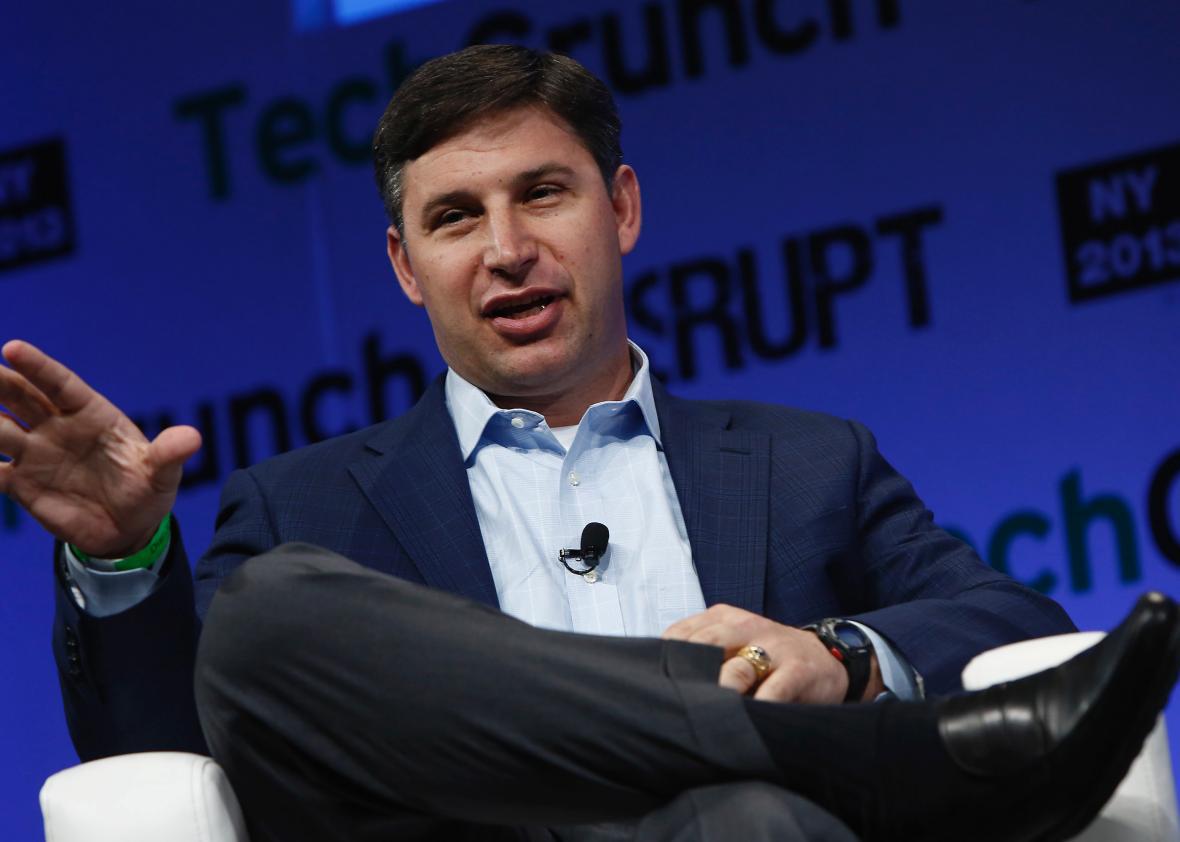On Friday morning, President Trump issued his latest threat to curtail the media’s access to the White House—and a top Twitter executive took it as an opening to make a marketing pitch.
It started when Trump began tweet-storming his excuse for the false statements that his spokespeople, Sarah Huckabee Sanders and Sean Spicer, made about the firing of FBI Director James Comey in this week’s White House press briefings.
Maybe the best thing to do, Trump mused, would be to cancel the briefings altogether, ending a longstanding practice that is widely considered an important venue for the press to publicly hold the president accountable. The president suggested that his communications team could instead “hand out written responses for the sake of accuracy.”
To journalists, this is a familiar and galling PR tactic—a way for powerful people and institutions to dodge tough questions about their words and actions. Live, in-person interviews can force subjects to respond more clearly and frankly, because they can’t cherry-pick favorable questions or consult with lawyers or marketing gurus to craft cagey answers. It’s pretty obvious why a man like Trump, who tends to make up his version of the truth as he goes along, would want to shut down a venue in which his spokespeople have to defend him in real time, on live TV. The president of the White House Correspondent’s Association weighed in with a statement opposing Trump’s proposal.
To Twitter’s Anthony Noto, however, it apparently sounded like a golden opportunity. Noto, the former Goldman Sachs banker who is now Twitter’s COO and CFO, has been described by the tech blog Recode as “the man running Twitter.” (CEO Jack Dorsey splits his time between Twitter and the mobile payments company Square, where he is also CEO.) Here’s how he replied to Trump’s tweet Friday morning:
That sounded a lot like an endorsement of Trump’s proposal to permanently end press briefings. And while Twitter has its virtues as a forum for public debate, replacing live briefings with written Twitter responses would play right into the administration’s goal of limiting its accountability. With countless questions to choose from, Trump and his deputies would have plenty of cover to ignore the curveballs and home in on the softballs from partisan allies. And they could presumably take their time answering, making sure not to commit themselves to anything that could prove controversial.
About three hours after he published that tweet, Noto followed up with what he framed as a clarification. Conceding that Twitter is “not a substitute for a vibrant & free press,” Noto tweeted that he doesn’t actually support cancelling press briefings. “Sorry 4 confusion,” he added.
Twitter declined to comment further, referring me to Noto’s follow-up tweet.
The company has already taken some flack from Trump opponents for giving the president a platform that he has often used to spread misinformation, launch personal attacks on political rivals, and in some cases denigrate minority groups. As I reported in November, the company has not ruled out suspending Trump’s account if it determines that his tweets clearly violate its terms of service. That’s in contrast to Facebook, whose CEO Mark Zuckerberg has indicated that he considers Trump’s rhetoric to automatically fall within the bounds of acceptable political discourse by definition. Still, it seems clear that Twitter has no plans to take action against Trump, whose use of the platform has helped to underscore Twitter’s relevance at a time when it’s under heavy pressure from investors.
I think Twitter is right to give the president of the United States some leeway in what he’s allowed to say on the platform. The public has a compelling interest in hearing directly from Trump, even—or perhaps especially—when he’s saying things that are false, outrageous, offensive, or otherwise indefensible. And Twitter Q-and-A’s with the president or his spokespeople are not an inherently bad idea, as long as they don’t come at the expense of the professional media’s access.
The problem is the careless opportunism of Noto’s tweet. Twitter likes to think of itself as a public square, and it generally deserves praise for taking its role in political discourse seriously. The downside of the “mission-driven” culture at Twitter and other prominent Internet companies, however, is that it can lead people like Zuckerberg and Noto to conflate their own firms’ interests with those of society at large. The result is that, in many cases, they’re all too eager to disrupt things that would probably be better off undisrupted.
It’s nice that Noto followed up with a note of support for press briefings, although I don’t really buy that the reaction to his original tweet was based on “confusion.”
The White House press briefing is far from a perfect institution. But at a time when Trump is doing all he can to dismantle the checks on his power, the last thing we need are Silicon Valley titans sponsoring his assaults on democratic norms.
